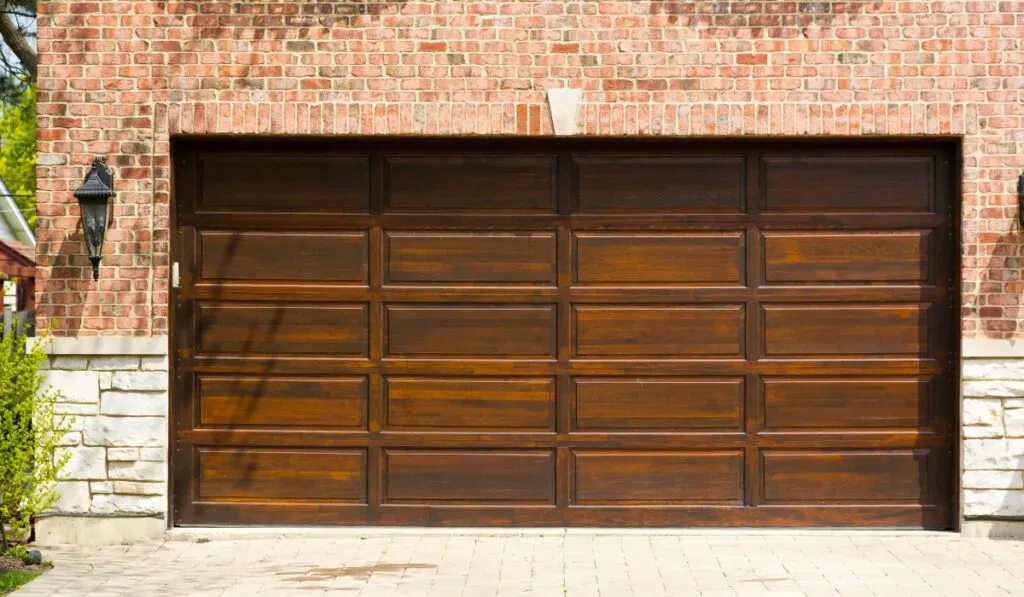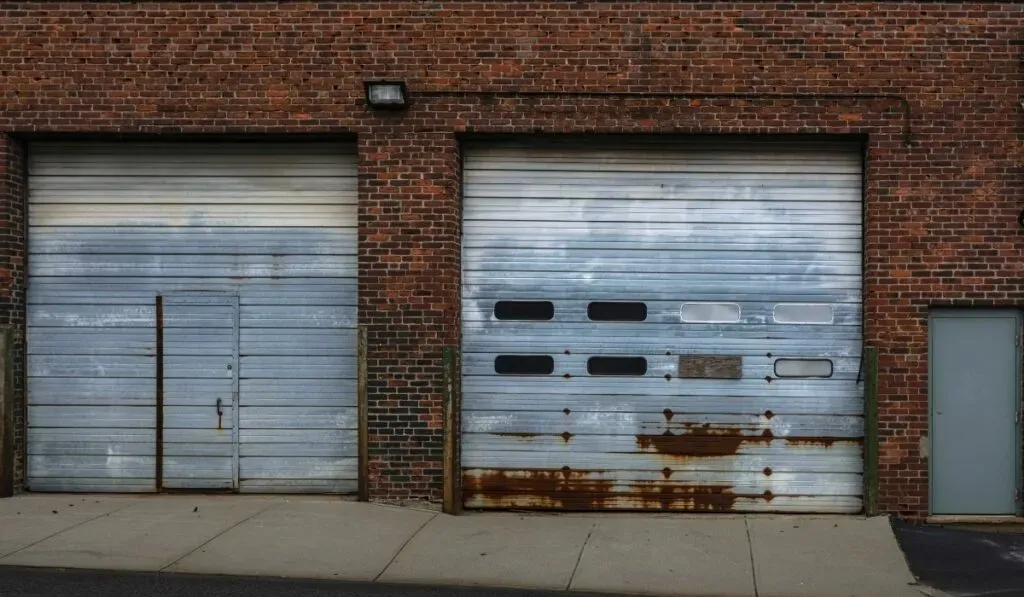
Garage door rust prevention coastal areas require regular garage door maintenance to combat salt-air protection challenges and corrosion mechanisms found in coastal climates. Using materials like 304 or 316 stainless steel, protective finishes such as hot-dip galvanizing or PVDF, along with proper lubrication and rinse schedules, ensures long-lasting durability and style for coastal garage doors.
Understanding Coastal Challenges
Living close to the coast brings some unique problems for garage doors. The coastal climate adds more humidity. This moisture can cause rust formation and mold if you don’t keep an eye on it. Also, UV rays from the sun can break down the door’s finish over time. That leads to fading and damage that hurts how your door looks and works.
Here’s what you need to know:
- Coastal climate garage doors face extra wear.
- Humidity effects on garage doors can cause rust and mold.
- UV damage garage doors need special care.
If you don’t manage these factors, your garage door won’t last as long as it should.
The Impact of Saltwater
Salt air corrosion is a big problem near oceans. Salt-laden air and salt spray land on your garage door every day. If you ignore it, rust starts fast. You can fight this by:
- Regularly Lubricate moving parts to keep smooth operation.
- Rinse Often: Use fresh water at least once a month to wash off salt residue.
- Apply Protective Coatings made for salt air corrosion protection.
These steps protect your door from corrosion and help extend lifespan through regular garage door maintenance Newport Beach coastal homeowners rely on. Don’t let salt ruin your investment.
The Role of Humidity
Humidity affects garage doors a lot around the coast. High moisture levels promote mold growth, which damages both wood and metal parts. You should:
- Keep good ventilation in your garage space.
- Check often for any signs of mold or mildew.
Mold and mildew prevention stops bigger problems later on. So, keep humidity low to maintain your door’s condition.
UV Ray Damage
UV rays cause damage too. Sunlight fades paint and weakens materials over time if you don’t use protection. To guard against this:
- Pick UV resistant finishes when you buy or refinish a door.
This protects against fading and keeps the door looking nice longer.
Knowing about saltwater impact, humidity effects, and UV damage helps you take better care of coastal garage doors. Regular upkeep protects your door and keeps it working smoothly for years!
Aluminum Garage Doors: Durable and Corrosion-Resistant for Coastal Areas
Aluminum garage doors work great for homes near the ocean. They don’t rust easily like other metals. This happens because aluminum forms a thin oxide layer that blocks salt air damage. When you add anodized aluminum finishes, the doors get an extra tough coating. This helps them last longer and resist weather.
These doors are lightweight but still strong. That means they put less strain on openers and hardware, so those parts last longer too. Aluminum handles humidity well. Unlike wood, it won’t warp or swell when it gets wet.
Here’s why aluminum is good for coastal spots:
- Corrosion-resistant garage doors fight rust
- Anodized aluminum finishes add protection
- Lightweight design makes opening easier
- Weatherproof garage door materials hold up to moisture
- Built tough for marine environment durability
If you want a door that stays nice with little upkeep, aluminum is a solid pick near the sea.
Galvanized Steel Garage Doors: Effective Rust Prevention Through Hot-Dip Galvanizing
Galvanized steel garage doors stand strong against rust by using hot-dip galvanizing. This means dipping steel into molten zinc to coat it thickly. The zinc acts as a sacrificial anode—it rusts first to save the steel beneath.
To boost this protection, makers paint over the zinc with zinc-rich primer coatings. These layers block moisture and salt that cause corrosion in coastal areas.
Here are key points about galvanized steel doors:
- Hot-dip galvanizing covers steel with thick zinc
- Zinc-rich primers add extra corrosion resistance
- Sacrificial anodes help protect metal from rusting
- Regular checks keep paint intact and protect further
- Strong material good for salty seaside conditions
Using galvanized steel gives you tough, rust-fighting garage doors built for hard weather.
Composite Materials: Versatile Options With Built-In Weather Resistance
Composite garage door materials mix things like wood fibers, urethane coatings, fiberglass strands, or vinyl sheets. This mix gives good results for salty air spots.
Look at these composite choices:
- Urethane Coatings: Seal out water to keep moisture from soaking inside.
- Fiberglass Garage Doors: Resist cracks and don’t need much care. They handle coastal temperature swings well.
- Vinyl Garage Doors: Light and don’t rot or get bugs. Vinyl stays strong even in salty air without rusting.
Composite materials offer looks and function together. They insulate better and last long near the ocean.
Protective Coatings and Treatments for Coastal Garage Doors
Garage doors near the coast get hit hard by salty air. This salt speeds up rust and corrosion. Using good protective coatings helps your garage door last longer. Corrosion-resistant garage doors often come with marine-grade protective coatings. These are made for tough conditions.
Powder-coated finishes work well here. They form a strong, even layer that stops chipping and keeps moisture out better than regular paint. PVDF coatings also help a lot. They fight UV rays and offer anti-corrosion treatment. So, they fit coastal areas perfectly.
Epoxy primers matter too. You put them on before painting. They stick tightly to metal and block moisture and salt that cause rust. Using epoxy primer plus other coatings keeps your door looking good despite salty air.
You can also use corrosion inhibitors as sprays or in coatings. These stop metal parts from rusting early. Regularly applying these keeps rust off both the door and its hardware.
Corrosion-Resistant Primers and Topcoats
Primers protect garage doors by blocking saltwater and other corrosive stuff from reaching the metal.
Zinc-rich primers are popular because zinc corrodes first, saving the steel underneath. This follows ASTM B117 standards for salt spray testing, which proves it lasts a long time in harsh conditions.
Clear coats with corrosion inhibitors add another layer of protection without changing color or finish. Epoxy primers stick well to surfaces, while polyurethane powder coating gives strength with some flexibility—good for coastal temperature swings.
Anti-corrosive primers stop the metal surface from breaking down over time by fighting chemical reactions from salt deposits.
Here’s what you get with good primer-topcoat systems:
- Lower repair costs
- Less frequent repainting
- Better defense against rust damage
Anodized Finishes for Aluminum Garage Doors
Aluminum garage doors do well with anodized aluminum finishes near the coast where steel rusts faster.
Anodizing uses an electrochemical process to thicken aluminum’s natural oxide layer on its surface. This makes it tougher against scratches, fading from sun, wear, and most importantly—corrosion from salty sea spray.
Unlike paint-based coatings, anodized finishes don’t peel or chip easily. This means less upkeep while keeping the door looking nice longer than painted options that break down at beaches.
If you want a low-maintenance garage door that lasts long by the ocean or bay, aluminum doors with anodized finishes are a smart choice backed by science showing their durability against coastal wear.
Clear Coats with Corrosion Inhibitors
Clear coats mixed with corrosion inhibitors add important protection over painted or bare metal parts on your garage door system—like hinges or tracks—that often rust near salty air.
These see-through protective wax coatings seal tiny pores where moisture sneaks in. If left alone, this moisture causes oxidation under paint which leads to peeling paint and weaker structure over time.
Clear coats pair well with epoxy primers because they make a flexible but tough film that repels water mixed with salt in the air. This lowers pitting corrosion risk—a common problem for seaside homes.
Applying clear coats regularly keeps your door working well and looking nice without changing its original color. It protects your investment from breaking down early in salty environments often studied in ASTM research about outdoor metals exposed to sea salt.
Regular Washing and Cleaning for Coastal Garage Doors
Regular rinsing helps stop salt spray damage on your garage doors near the coast. Salt in the air lands on surfaces and causes rust over time. Washing your door every month with fresh water clears away salt before it makes rust or that chalky white residue you often see on metal.
Stick to a saltwater rinse schedule to keep harmful salts from building up. Use mild soap if needed but don’t use strong chemicals that remove protective coatings like PVDF or galvanizing. This step fights coastal weather challenges well. It keeps your door safe by giving it salt air corrosion protection.
Here’s what to do:
- Rinse monthly with fresh water
- Avoid harsh cleaners
- Watch for chalky white marks
- Keep to a rinse schedule
This simple care will help your garage door last longer near salty air.
Lubrication and Hardware Inspection
Lubricating garage door parts stops wear from friction and salty air damage. Silicone-based lubricant works best because it doesn’t soak up moisture like oil-based ones do. For doors close to the ocean, marine-grade lubricants protect even better against rust.
When you lubricate, check all the hardware too. Tighten loose bolts and try opening the door by hand. Make sure it moves smoothly without sticking or strange sounds. Look at torsion springs carefully; they tend to rust fast near saltwater and may require professional torsion spring replacement service. Good lubrication slows down torsion spring corrosion.
Follow these steps for hardware care:
- Use silicone or marine-grade lubricant
- Check bolts are tight
- Test manual operation
- Focus on torsion springs
Doing these keeps your door working safely despite coastal conditions.
Weather Stripping Upkeep
Weatherstripping blocks drafts, moisture, and dirt from getting inside your garage door area. That’s very important where coastal humidity is high. Vinyl weather stripping is common but can wear out quicker near the ocean because of sun and salt spray.
EPDM rubber seals last longer against these problems and stay flexible through all seasons. Check your garage door weather stripping often for cracks or brittleness from sun exposure in coastal areas.
Replace worn weather seal parts quickly to save energy and keep corrosive sea air out of your garage’s moving parts.
To keep weather stripping in good shape:
- Inspect regularly for cracks or brittleness
- Choose EPDM rubber seals if possible
- Replace damaged seals soon
This protects both your home and garage mechanisms from coastal wear.
Professional Inspections and Service
Getting a professional inspection gives expert care designed for homes near the coast. Techs spot early rust, worn parts, or bad seals that you might miss during regular checks.
Set up professional servicing every year for preventive maintenance made just for coastal homes. They follow cleaning rules based on ASTM standards like B117, which deals with marine environments. Pros also apply special sprays recommended by industry groups such as DASMA.
Expert inspections catch problems early before they become costly repairs. They help extend the life of your whole garage door system.
In short:
- Schedule annual pro inspections
- Look for rust or worn parts early
- Use service following marine environment standards
This way, you protect your investment against salty seaside effects.
Hurricane-Rated Garage Doors: Built to Withstand Coastal Storms

hurricane-rated garage doors stand strong against heavy winds and storm exposure in coastal areas. These impact-resistant garage doors have a reinforced structure. They resist flying debris and strong wind pressure during hurricanes. Their weather-resistant materials protect them from rain, salt air, and harsh conditions.
Picking a hurricane-rated garage door through professional new garage door installation means you protect your home from bad weather. These doors meet tough building codes for wind resistance and impact tests. They stay durable and keep your home safe through many storms.
Challenges of Coastal Environments on Garage Doors
Coastal areas cause problems for garage doors because of salty air and moisture. Salt causes springs and metal parts to rust faster. Rust can weaken the door’s structure over time. This damage leads to repairs or replacing parts often.
Salt spray mixed with wind-driven rain wears down seals and finishes too. Even hurricane-rated garage doors may get rusty or break if not cared for well. Regular upkeep helps prevent early wear and tear.
Marine-Grade Hardware: The Key to Durability
Marine-grade hardware fights rust in salty coastal places. Using strong metals keeps parts working smoothly:
- Stainless Steel 304: Good rust resistance at a fair price.
- Stainless Steel 316: Has molybdenum, so it lasts longer in salty spots.
- Galvanized Steel: Zinc-coated steel that slows rust but needs checks now and then.
These metals stop hinges, rollers, tracks, and springs from breaking down fast during storms.
Corrosion Inhibitors & Protective Finishes Extend Door Life
Using corrosion inhibitors and protective finishes makes hurricane-rated garage doors last longer by the coast. Powder-coated finishes form a tough layer that blocks moisture while adding color choices.
Corrosion inhibitors soak into tiny gaps near hardware where water gathers before rust starts. Applying them slows rusting caused by salty air.
Do simple maintenance like rinsing off salt after storms (follow ASTM coastal care rules). These steps keep your storm-exposure garage door working well all year without losing strength or looks.
Style Considerations for Coastal Homes
Picking the right garage door style matters a lot, especially near the coast. You want it to look good and stand up to salty air and wind. Coastal homes have special designs, so your door should fit in with the surroundings but also handle tough weather.
Garage Door Aesthetic Considerations
Coastal areas have a chill, relaxed vibe. Many folks like garage doors that match natural stuff like wood, stone, and ocean views. Doors with simple panels and clean lines keep things looking classic. They don’t distract from the home’s outside look.
The material you choose makes a difference too. Fiberglass or vinyl doors with marine-grade coatings look nice and fight rust. These materials copy the look of wood but don’t need as much work to keep them nice. That’s great for salty air.
Garage Door Color Palettes for Coast
Colors help make your home pop but also protect your door from sun and salt damage. Soft shades like sandy beige, warm taupe, or light gray blend well on the beach. Blues and seafoam greens bring out ocean vibes without clashing.
Use UV-resistant paint to keep colors bright even under strong sunlight. Dark colors soak up heat and can make your garage hotter, so it’s better to pick lighter tones.
Mediterranean-Inspired Door Accents
Mediterranean-style homes are common near water because they feel warm and welcoming. Adding touches like wrought iron handles, decorative grills, or arched panels can spice up your garage door.
These extras add charm but still work well in coastal spots since they don’t easily rust. Plus, you can pick details that suit your taste while keeping the door tough against salty weather.
Proactive Maintenance for Durable Coastal Garage Doors
Keeping rust away means giving your garage door regular care made for coastal weather. To make it last longer:
- Maintain paint or finish by checking it every year.
- Regularly lubricate moving parts with marine-grade spray that blocks salt build-up.
- Seal gaps around the frame to stop moisture from sneaking in.
- Check rollers and tracks often to keep the door running smooth.
Using strong materials plus simple upkeep lowers wear from salty air. Calling in pros for inspections catches early rust before repairs get pricey.
Stick with these steps regularly and your coastal garage door stays tough against rust while still looking good year-round—working well no matter what season rolls around.
